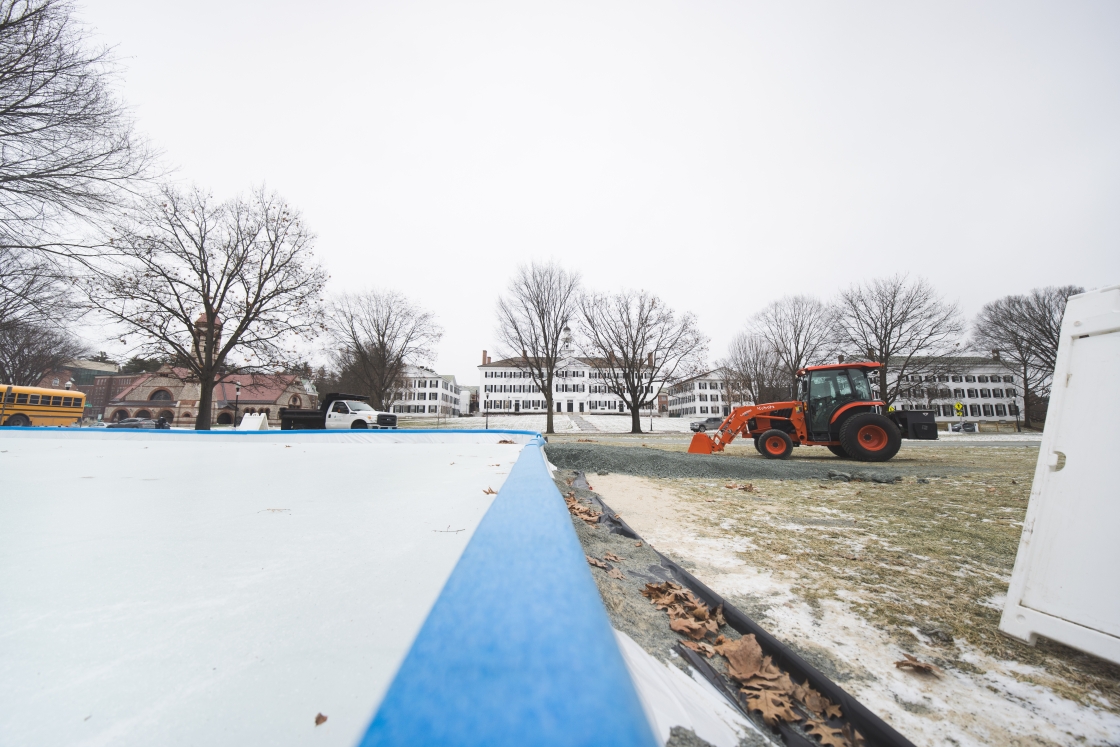Novelist, poet, essayist, and member of the Dartmouth Class of 1976 Louise Erdrich will be in residence on campus May 2 through May 6 serving as the spring term Montgomery Fellow.

Louise Erdrich will be in residence May 2 through 6 and give a public reading of her novel in progress on May 4. (photo by Joseph Mehling ’69)
Erdrich will visit classes in Native American studies, creative writing, and sociology, and will meet with undergraduates in informal meetings. Her Montgomery presentation, during which she will read from her novel in progress, will take place on Wednesday, May 4, at 4:30 p.m. in Cook Auditorium.
The author of 13 novels, Erdrich has also published volumes of poetry, short stories, children’s books, and a memoir. Among her works are the highly-acclaimed novels Love Medicine (1984), which won the National Book Critics Circle Award; The Last Report on the Miracles at Little No Horse (2001), which was a finalist for the National Book Award; and most recently, The Plague of Doves (2009), which won the Anisfield-Wolf Book Award and was a finalist for the Pulitzer Prize.
At Dartmouth, Erdrich was a member of first four-year class to matriculate women. In 2009, she received an honorary degree from the College when she served as the Commencement speaker. Her daughter, Aza Erdrich Dorris, is a member of the Class of 2011 and will graduate in June.
The author recently answered a few questions from Dartmouth Now, prior to her arrival in Hanover.
When you get asked for advice by aspiring writers, what do you tell them?
I tell aspiring writers to keep diaries or journals descriptive of their surroundings, events, people, and stories they hear. These things are difficult to remember later on. I also ask them not to use journal as a verb, as in “I’m journaling.” Tritely, I also say to persist, but I do have shoe boxes of rejection slips. So, persist.
In your 2009 Commencement address, you spoke some Ojibwe. Why do you think learning the language is important?
The Ojibwe language, as well as other indigenous languages, is a direct link to this mysterious earth. The words and ideas in the languages came from a dependence on and closeness to creation that most people have lost. Many of the words were dreamed, or given to the speakers from the places and animals here. Each word is represented by a spirit. Learning Ojibwe is spiritual as well as intellectual and emotional work. Most of all, there is so much humor in the language—most of the classes have people laughing about half the time.
Your daughter Aza is about to graduate. How has her experience been similar to and different from your own?
Aza’s and my experiences at Dartmouth seem remarkably alike, except that she has a maturity and clarity I lacked back then. As a mother, I am thankful. Seeing Dartmouth through her eyes is peculiar, though, and causes memories to flicker on and off at great speed as we are doing the simplest repetitive things, like walking across the Green. Toward the Hop. Where I can almost see myself brooding in a big chair and frowning down at my diary.
Established in 1977, Dartmouth’s Kenneth and Harle Montgomery Endowment provides for “the advancement of the academic realm of the College” in ways that enhance the educational experience, in particular that offered to undergraduate students

